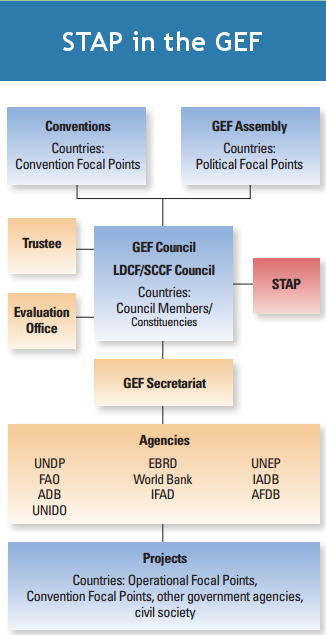
The Convention on Biological Diversity (CBD), known informally as the Biodiversity Convention, is a multilateral treaty. The convention has three main goals: the conservation of biological diversity ; the sustainable use of its components; and the fair and equitable sharing of benefits arising from genetic resources. Its objective is to develop national strategies for the conservation and sustainable use of biological diversity, and it is often seen as the key document regarding sustainable development.
The United Nations Convention to Combat Desertification in Those Countries Experiencing Serious Drought and/or Desertification, Particularly in Africa (UNCCD) is a Convention to combat desertification and mitigate the effects of drought through national action programs that incorporate long-term strategies supported by international cooperation and partnership arrangements.

The Ramsar Convention on Wetlands of International Importance Especially as Waterfowl Habitat is an international treaty for the conservation and sustainable use of wetlands. It is also known as the Convention on Wetlands. It is named after the city of Ramsar in Iran, where the convention was signed in 1971.

The Global Environment Facility (GEF) was established on the eve of the 1992 Rio Earth Summit to help tackle our planet's most pressing environmental problems. The GEF unites 184 countries in partnership with international institutions, civil society organizations (CSOs), and the private sector to address global environmental issues while supporting national sustainable development initiatives. Since 1992, the GEF has provided close to $20.5 billion in grants and mobilized an additional $112 billion in co-financing for more than 4,800 projects in 170 countries. Through its Small Grants Programme (SGP), the GEF has provided support to nearly 24,000 civil society and community initiatives in 133 countries.
The Intergovernmental Oceanographic Commission of UNESCO (IOC/UNESCO) was established by resolution 2.31 adopted by the General Conference of UNESCO. It first met in Paris at Unesco Headquarters from 19 to 27 October 1961. Initially, 40 States became members of the Commission. The IOC assists governments to address their individual and collective ocean and coastal management needs, through the sharing of knowledge, information and technology as well as through the co-ordination of programs and building capacity in ocean and coastal research, observations and services.
Calestous Juma was a Kenyan scientist and academic specialising in sustainable development. He was named one of the most influential 100 Africans in 2012, 2013 and 2014 by the New African magazine. He was Professor of the Practice of International Development and Faculty Chair of the Innovation for Economic Development Executive Program at Harvard Kennedy School. Juma was Director of the School's Science, Technology and Globalization Project at Harvard Kennedy School as well as the Agricultural Innovation in Africa Project funded by the Bill and Melinda Gates Foundation. His last book, Innovation and Its Enemies: Why People Resist New Technologies. was published by Oxford University Press in 2016.
The Deutsche Gesellschaft für Internationale Zusammenarbeit (GIZ) GmbH, often shortened to simply GIZ, is a German development agency headquartered in Bonn and Eschborn that provides services in the field of international development cooperation and international education work. GIZ's main commissioning party is Germany's Federal Ministry for Economic Cooperation and Development (BMZ). Other commissioners include European Union institutions, the United Nations, the private sector, and governments of other countries. In its projects GIZ works with partners in national governments, actors from the private sector, civil society and research institutions. It is the organization's self-declared goal to deliver effective solutions that offer people better prospects and sustainably improve their living conditions.
The Biosafety Clearing-House is an international mechanism that exchanges information about the movement of genetically modified organisms, established under the Cartagena Protocol on Biosafety. It assists Parties to implement the protocol’s provisions and to facilitate sharing of information on, and experience with, living modified organisms. It further assists Parties and other stakeholders to make informed decisions regarding the importation or release of GMOs.
An emission inventory is an accounting of the amount of pollutants discharged into the atmosphere. An emission inventory usually contains the total emissions for one or more specific greenhouse gases or air pollutants, originating from all source categories in a certain geographical area and within a specified time span, usually a specific year.
Energy poverty is lack of access to modern energy services. It refers to the situation of large numbers of people in developing countries and some people in developed countries whose well-being is negatively affected by very low consumption of energy, use of dirty or polluting fuels, and excessive time spent collecting fuel to meet basic needs. It is inversely related to access to modern energy services, although improving access is only one factor in efforts to reduce energy poverty. Energy poverty is distinct from fuel poverty, which focuses solely on the issue of affordability.

The United Nations Forum on Forests (UNFF) is a high-level intergovernmental policy forum. The forum includes all United Nations member states and permanent observers, the UNFF Secretariat, the Collaborative Partnership on Forests, Regional Organizations and Processes and Major Groups.
The French Facility for Global Environment (FFEM) is a French public bilateral fund whose mission is to protect the global environment in developing countries, in the name of the French cooperation and development policy.
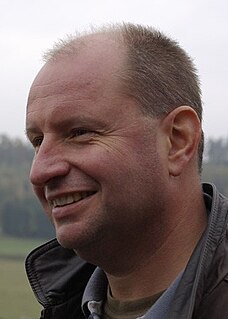
Thomas Jakl is the former chair of the European Chemicals Agency's Management board and is Deputy Director General of the Austrian Environment Ministry responsible for Chemicals Policy. His field of activity includes legislation on chemical substances at the national, European and UN levels. He served as ECHA's president from 2008 until September 2012. He is president of the Governing Board and "Ambassador" of the EU's Human Biomonitoring program "HBM4EU".
Environmental governance is a concept in political ecology and environmental policy that advocates sustainability as the supreme consideration for managing all human activities—political, social and economic. Governance includes government, business and civil society, and emphasizes whole system management. To capture this diverse range of elements, environmental governance often employs alternative systems of governance, for example watershed-based management.
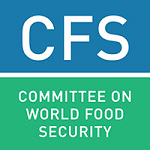
The Committee on World Food Security (CFS) was established in 1974 as an intergovernmental body to serve as a forum in the United Nations System for review and follow-up of policies concerning world food security including production and physical and economic access to food.

The Arctic policy of the United States is the foreign policy of the United States in regard to the Arctic region. In addition, the United States' domestic policy toward Alaska is part of its Arctic policy.
Soil governance refers to the policies, strategies, and the processes of decision-making employed by nation states and local governments regarding the use of soil. Globally, governance of the soil has been limited to an agricultural perspective due to increased food insecurity from the most populated regions on earth. The Global Soil Partnership, GSP, was initiated by the Food and Agriculture Organization (FAO) and its members with the hope to improve governance of the limited soil resources of the planet in order to guarantee healthy and productive soils for a food-secure world, as well as support other essential ecosystem services.
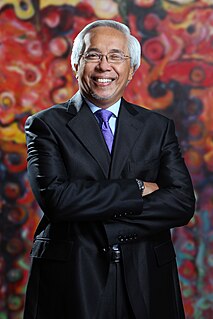
Tan Sri Zakri bin Abdul Hamid has had a distinguished career in science as a researcher, educator, administrator and diplomat.
Waste management in Kazakhstan is an important concern within the country, considering the billions of tons of industrial waste produced yearly, the currently less-than-optimal state of solid waste management, and existing toxins remaining from both pollutants and Kazakhstan's historical position as the USSR's testing grounds for rockets and nuclear weapons. Kazakhstan has very few services for recycling solid waste, and waste management is currently dealt with using regional programs.
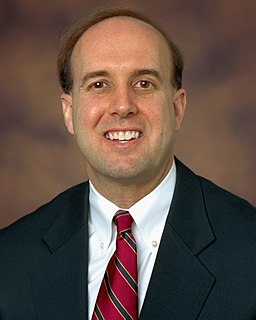
Robert K. Dixon is an energy, environment, and economic expert at the Office of International Affairs, US Department of Energy headquarters in Washington, DC, USA.
